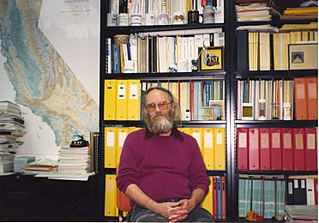A Quote by Jacob Bronowski
Progress is the exploration of our own error. Evolution is a consolidation of what have always begun as errors. And errors are of two kinds: errors that turn out to be true and errors that turn out to be false (which are most of them). But they both have the same character of being an imaginative speculation. I say all this because I want very much to talk about the human side of discovery and progress, and it seems to me terribly important to say this in an age in which most non-scientists are feeling a kind of loss of nerve.
Quote Topics
About
Age
Always
Be True
Because
Begun
Being
Both
Character
Consolidation
Discovery
Error
Errors
Evolution
Exploration
False
Feeling
Human
Imaginative
Important
Kind
Kinds
Loss
Me
Most
Much
Nerve
Our
Out
Own
Progress
Same
Say
Scientists
Seems
Side
Speculation
Talk
Terribly
Them
True
Turn
Two
Very
Want
Which
Related Quotes
There are two equal and opposite errors into which our race can fall about the devils. One is to disbelieve in their existence. The other is to believe, and to feel an excessive and unhealthy interest in them. They themselves are equally pleased by both errors and hail a materialist or a magician with the same delight.
The history of science, like the history of all human ideas, is a history of irresponsible dreams, of obstinacy, and of error. But science is one of the very few human activities-perhaps the only one-in which errors are systematically criticized and fairly often, in time, corrected. This is why we can say that, in science, we often learn from our mistakes, and why we can speak clearly and sensibly about making progress there. In most other fields of human endeavour there is change, but rarely progress ... And in most fields we do not even know how to evaluate change.
Human beings should only use technology which if the worst case happens, it leads to an acceptable damage. Definitely nuclear energy is not in that category. I want an industrial world where people are allowed to make errors. Because human creativity has to do with being allowed to make errors. We want an error-friendly environment.
I not only could not stifle controversy among your readers.. I welcome it. This Administration intends to be candid about its errors; for as a wise man once said: "An error does not become a mistake until you refuse to correct it." We intend to accept full responsibility for our errors; and we expect you to point them out when we miss them.
As soon as error is corrected, it is important that the error be forgotten and only the successful attempts be remembered. Errors, mistakes, and humiliations are all necessary steps in the learning process. Once they have served their purpose, they should be forgotten. If we constantly dwell upon the errors, then the error or failure becomes the goal.
Photography is painting with light! The blurs, the spots, those are errors! But the errors are part of it, they give it poetry and turn it into painting. And for that you need as bad a camera as possible! If you want to be famous, you have to do whatever you're doing worse than anyone else in the whole world.




































